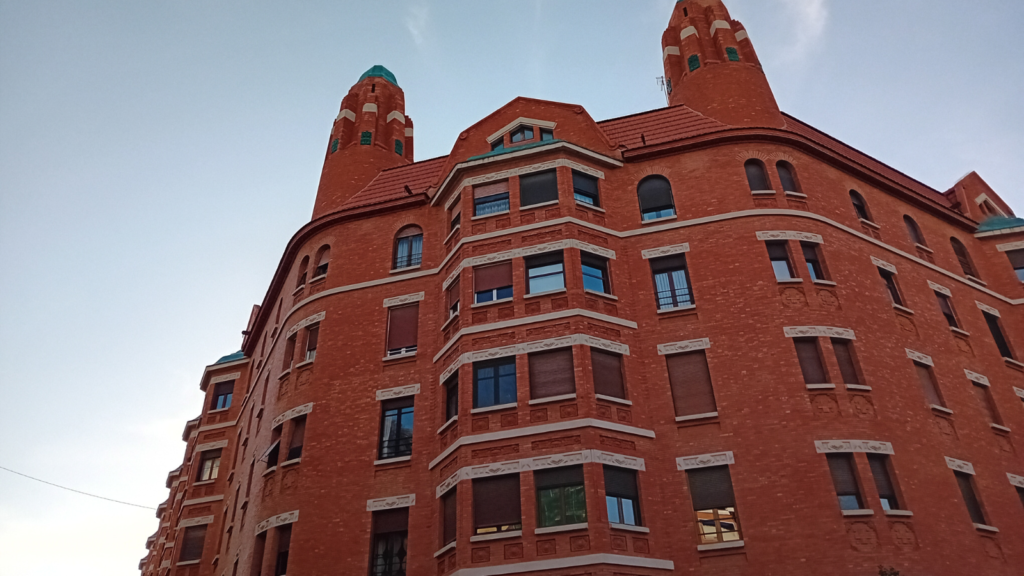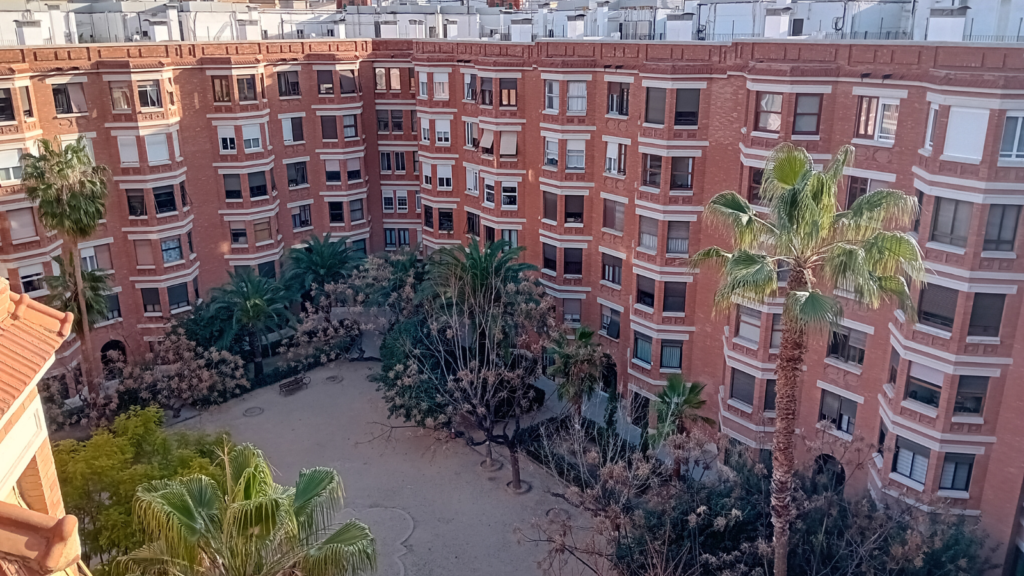On 7-8 February, Eurhonet’s Council of Administration headed to Valencia, Spain – European Green Capital 2024. The meeting provided an excellent opportunity to better understand the social housing landscape, identify common challenges, and learn about innovative projects taking place in the region. We gained insights into how Valencia is creating thriving, sustainable neighbourhoods, finding a balance between cultural heritage and urban development.
To kick off our discussions, we were welcomed by Enrique Bueso of the Spanish Social Housing Federation, AVS (Asociación Española de Gestores Públicos de Vivienda y Suelo). With over 150 member organisations managing 450,000 social homes across Spain, AVS plays a key role in advocating for decent and affordable housing. Its work affects over 1 million people who live in homes promoted and managed by AVS members.
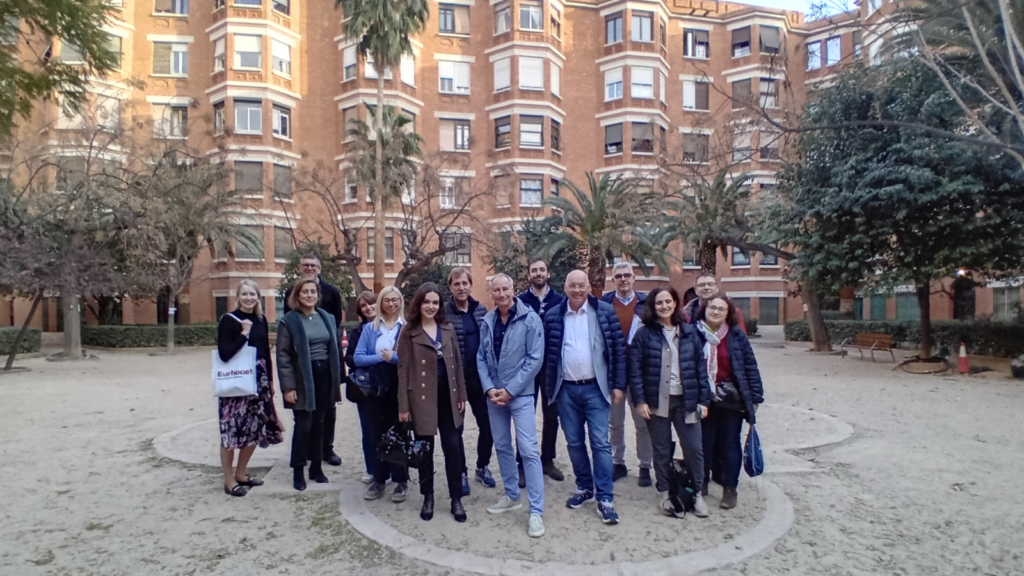
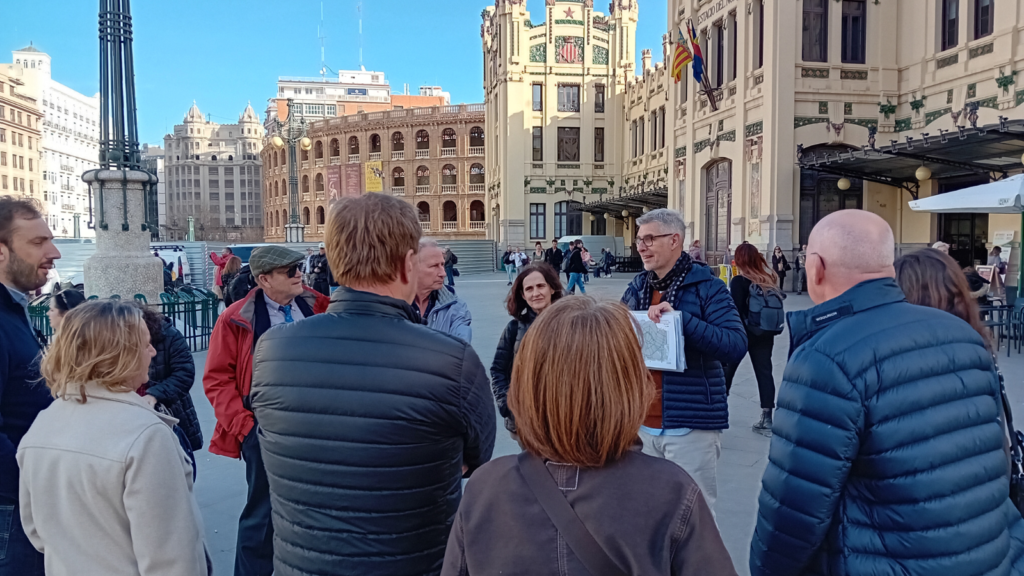
Navigating local challenges
Zooming in on the local context, César Mifsut from EVHA (La Entidad Valenciana de Vivienda y Suelo) presented the key challenges faced as a social housing provider in the region. EVHA manages around 15,000 homes in the Valencian community, covering three provinces: Valencia, Alicante, Castellón. Our Council of Administration members identified with many of the challenges faced at automonous administration level. These included the need for ongoing maintenance of the housing stock and for the provision of diverse social support to meet the needs of different residents. EVHA is facing these issues through innovative approaches, such as programmes to co-design communal areas with residents.
Cultural heritage and urban development
Through a study visit on the history of social housing in Valencia led by César Mifsut, we examined how the city has achieved a balance between innovation and preserving heritage. From the iconic Finca Roja – a complex of over 350 homes built for workers in the 1930s – to the re-development of town houses into temporary rehousing units in Barri del Carme, we explored how cultural heritage has remained central in urban development projects.
While respecting historical character, it is still possible to design for the future of our cities. The Valencian Institute of Building (IVE – Instituto Valenciano de la Edificación) is a non-profit innovation agency of the Regional Ministry. Miriam Navarro explained how its practical tools – including a database for construction budgeting and an environmental assessment report tool – help professionals to prioritise sustainability. In addition, the renovEU tool aims to help citizens make informed decisions about renovation options. EVHA also places great emphasis on improving the energy efficiency of its buildings – both in terms of renovation and behavioural training – through its involvement in EU-funded projects like TripleA-reno and HAPPEN.
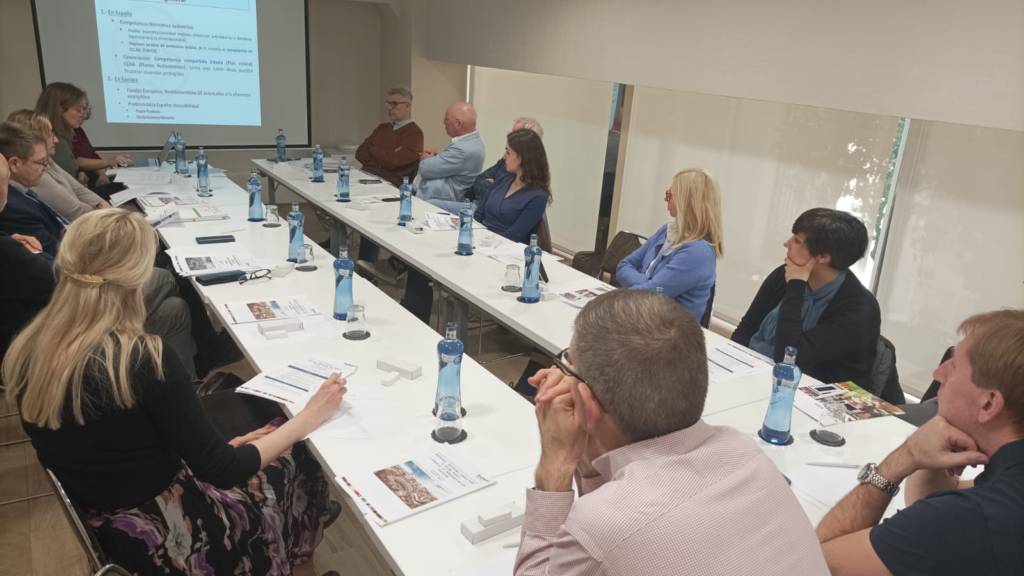
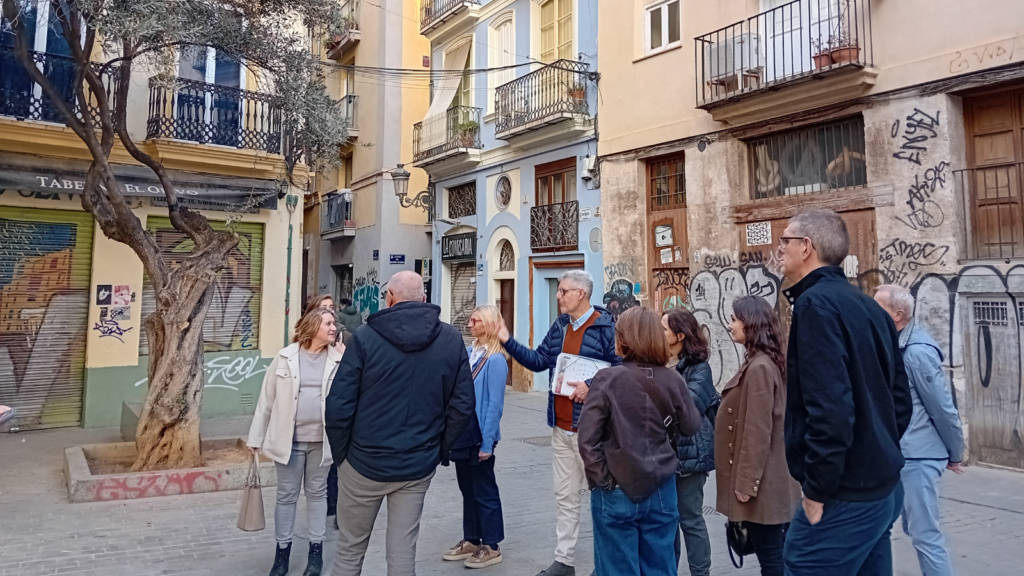
Examining the national picture
The impacts of climate change are bringing and will continue to bring significant challenges for housing providers in Spain. Miriam Navarro explained IVE’s tools for climate adaptation, including guidelines for improving a building’s resilience to flooding and a tool to assist in the design of urban public spaces in Mediterranean climates to mitigate the heat island effect.
Ana Silvestre Navarro, Legal Technician at AVS, shed light on Spain’s overarching housing challenges. Of primary concern is the lack of public housing stock, exacerbated by economic downturns, the COVID-19 pandemic, and the sale of housing stock to investment funds. Spain aims to expand and develop its public housing stock over the next years – in 2024, EVHA aims to develop over 3,200 dwellings in its region alone. For these ambitious projects across the country, AVS will play a pivotal role, advocating for inclusive neighbourhood regeneration that ensures sustainability, community, and accessibility.
Thanks to our meeting in Valencia, we have returned to our countries with a wealth of knowledge to feed into our collaborative work. We thank the great colleagues from AVS, EVHA, and IVE for welcoming us and sharing insights about their work. We look forward to collaborating again in the future.
